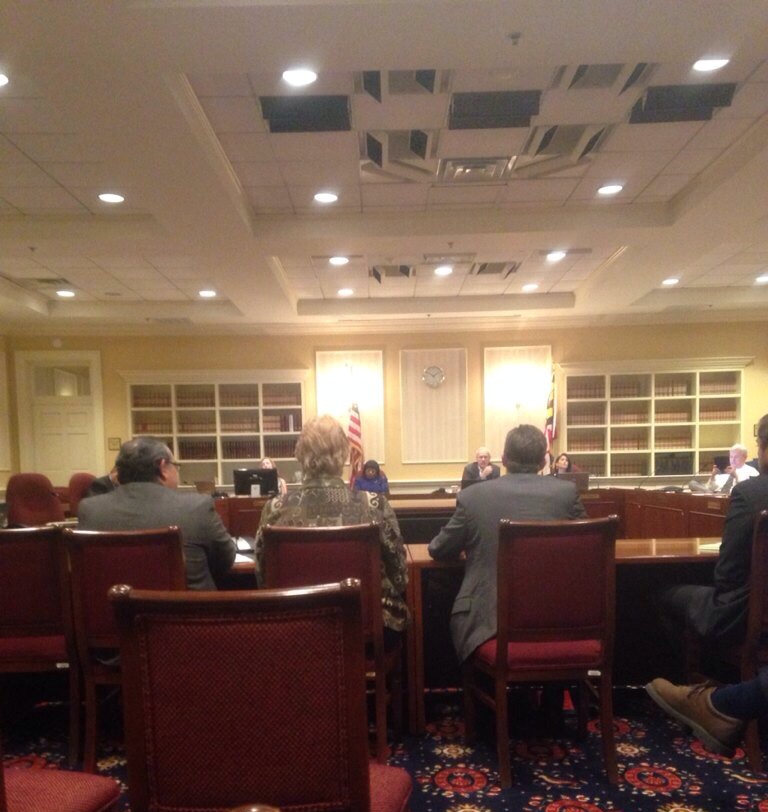ANNAPOLIS — Since 2011, $3.37 million intended to help mitigate pollution in the Chesapeake Bay has been diverted to the state’s general fund, but Sen. Bryan Simonaire, R-Anne Arundel, is aiming to stop that.
His bill, the Chesapeake and Atlantic Bays 2010 Trust Fund, was introduced to the Senate Education, Health and Environmental Affairs Committee on Tuesday. It would put a proposed state constitutional amendment before voters that, if approved, would make it increasingly difficult to divert funds from the bay fund to the state’s general fund or other special funds.

Under the bill, a transfer of funds would occur only if the governor declares a state of “fiscal emergency” and the General Assembly passes legislation approving the decision with at least a three-fifths majority in the House and Senate.
Upon its creation in 2008, the bay fund was allotted about 2.3 percent of motor fuel tax revenues and 55 percent of sales and use tax revenues from short-term vehicle rentals. Since then, subsequent legislation has diverted $112.4 million of that revenue from ever reaching the bay fund — the intended purpose — and instead allotted it to other funds, according to state data attached to the bill.
While the bill would prevent the direct transfer of money from the bay trust fund, it would do nothing to stop the diversion of motor fuel and rental-vehicle sales and use tax revenue.
A representative of the Chesapeake Bay Foundation attended the hearing to voice the organization’s support for the bill.
“We promise the people we put that money in the fund for the bay … and I think if it’s important enough for our roadway funds (to have a lockbox) then it’s important enough for our bay,” Simonaire said.
Another bill would update the Patuxent River Policy Plan, focusing less on regulatory ways to reduce pollution and instead seeking to engage people as “stewards of the river,” said Mary Kay Sigaty, vice-chair of the Patuxent River Commission.
The bill, sponsored by Sen. Joan Carter Conway, D-Baltimore, the chair of the Senate Education, Health and Environmental Affairs Committee, was met with no opposition and an optimistic outlook for its uncontested passage.
After an “era of significant regulation,” Sigaty said, the updated plan will focus on fostering a sense of appreciation for the state’s waterways, in hopes that state residents would be mindful of the environmental consequences of their actions.
“I think you can rest assured that the committee will take care of this,” said Sen. Paul Pinsky, D-Prince George’s, the vice-chair of the committee.
Conway also introduced legislation that would alter the way 12 out of 15 trustees of the Maryland Environmental Trust are selected. Instead of requiring a unanimous vote from all trustees present at a meeting — the current method — the governor will select new appointees with the input of the Senate.
By virtue of their election, the governor, speaker of the House and president of the Senate are automatically trustees.
“This is a very magnificent bill; this is a very simplistic bill,” Conway said, noting that it would help to improve the diversity, both racial and geographical, among the trustees of the Maryland Environmental Trust.


You must be logged in to post a comment.